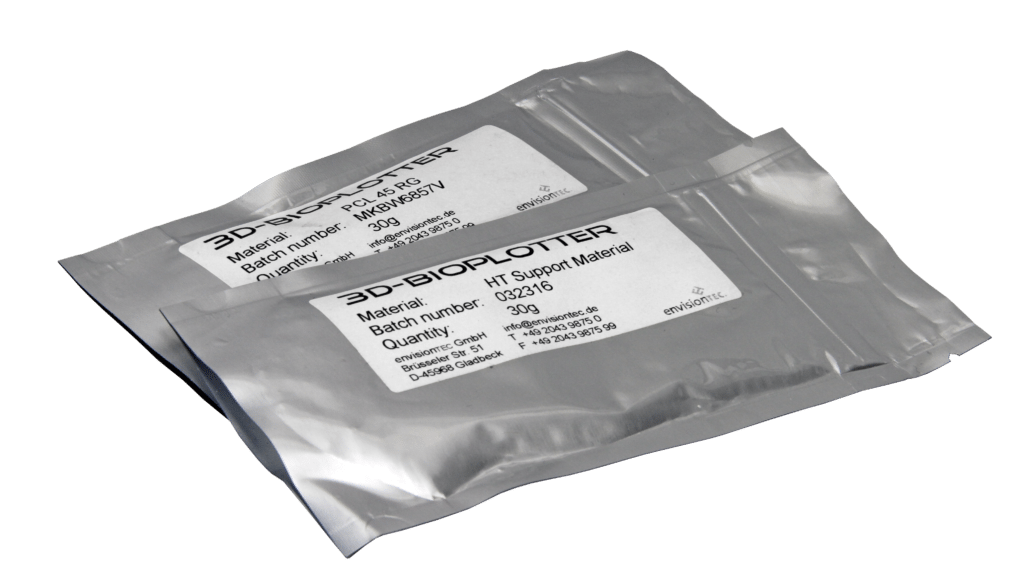Polycaprolactone (PCL) is one of the most versatile thermoplastic materials for Tissue Engineering Applications. With little thermal degradation, it is an excellent material for large, time-consuming parts. The mechanical stability of PCL objects can easily be controlled by the porosity of the parts.
With solid objects exhibiting increased mechanical stability compared to porous structures, PCL is an outstanding candidate for both bone and cartilage regeneration. Additionally, the surface erosion of the material allows for controlled release of additives during the degradation period of the fabricated part.
Physical Properties
Material Type
Thermoplastic
Curing System
Phase Transition/Solvent Evaporation
Appearance (color)
White
Appearance (Form)
Pellets/Granules
Infared Spectrum
Conforms to Structure
Molecular Weight
48000 = 90000 Da
Molecular NNumber
40000 – 50000 Da
Poly Dispersity MW/MM
1.2 – 1.8
Solubility
Dichloromethane, Chloroform
Processing Temperature
130°C – 150°C as melt/RT in solvent
Processing Parameters Available For
0.2mm / 03 mm / 0.4 mm needle tips
Printing Surface
Polyimide Film as melt Glass in solvent
Printing Speed (at 6.5 bar pressure
6.0 – 3.0 mm/sec
Grade
Research Grade
Degradation Period in Biological Systems
1-3 Years
Recommended Machines
Applications
Ten




